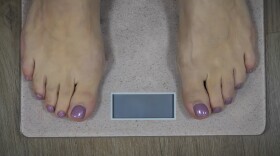Mara Gordon
-
What's a typical vacation activity for doctors? Work. A new study finds that most physicians do work on a typical day off. In this essay, a family doctor considers why that is and why it matters.
-
Yes, as Oprah enthused, the drugs help people shrink their bodies. But the psychological damage of weight stigma can't be so easily cured, a doctor writes.
-
Kate Manne tried to shrink her body for years before embracing her size as part of a "natural, normal human variation." She says the fight against fat phobia must start in the doctor's office.
-
A new book argues that the arts have a role to play in shaking up the status quo in the American health care system and creating 'desperately needed culture change.'
-
A physician decided to stop talking to patients about weight, and focus on health instead. But the new weight-loss drugs forced her to rethink how to help patients without feeding into stigma.
-
A judge's ruling puts access to the abortion drug mifepristone in limbo, pending further court decisions. But there's another drug that is safe and effective at ending early pregnancy.
-
Getting abortion medication online is easier than ever thanks to regulatory changes. The practice is pushing the boundaries of the traditional doctor-patient relationship.
-
Recent rule changes made it easier for patients to get abortion pills through the mail, using telehealth services. Now there is growing demand for these services – and new legal battles brewing.
-
Dr. Mara Gordon spent ten years observing the health care system as a medical student and physician. When she got pregnant she finally understood how vulnerable it can feel to be a patient.
-
As a doctor, I was eligible for the COVID-19 vaccine in December, but I also was pregnant, and there wasn't yet much data to inform my decision. What I needed was a different kind of information.
-
Female physicians spend more time with each patient than male doctors do and their patients report increased satisfaction. But the extra time adds up and results in less money.
-
More than 35% of students surveyed experienced mistreatment in a U.S. medical school. "There's a direct link between this abuse and how some ... health care disparities play out," a black doctor says.













